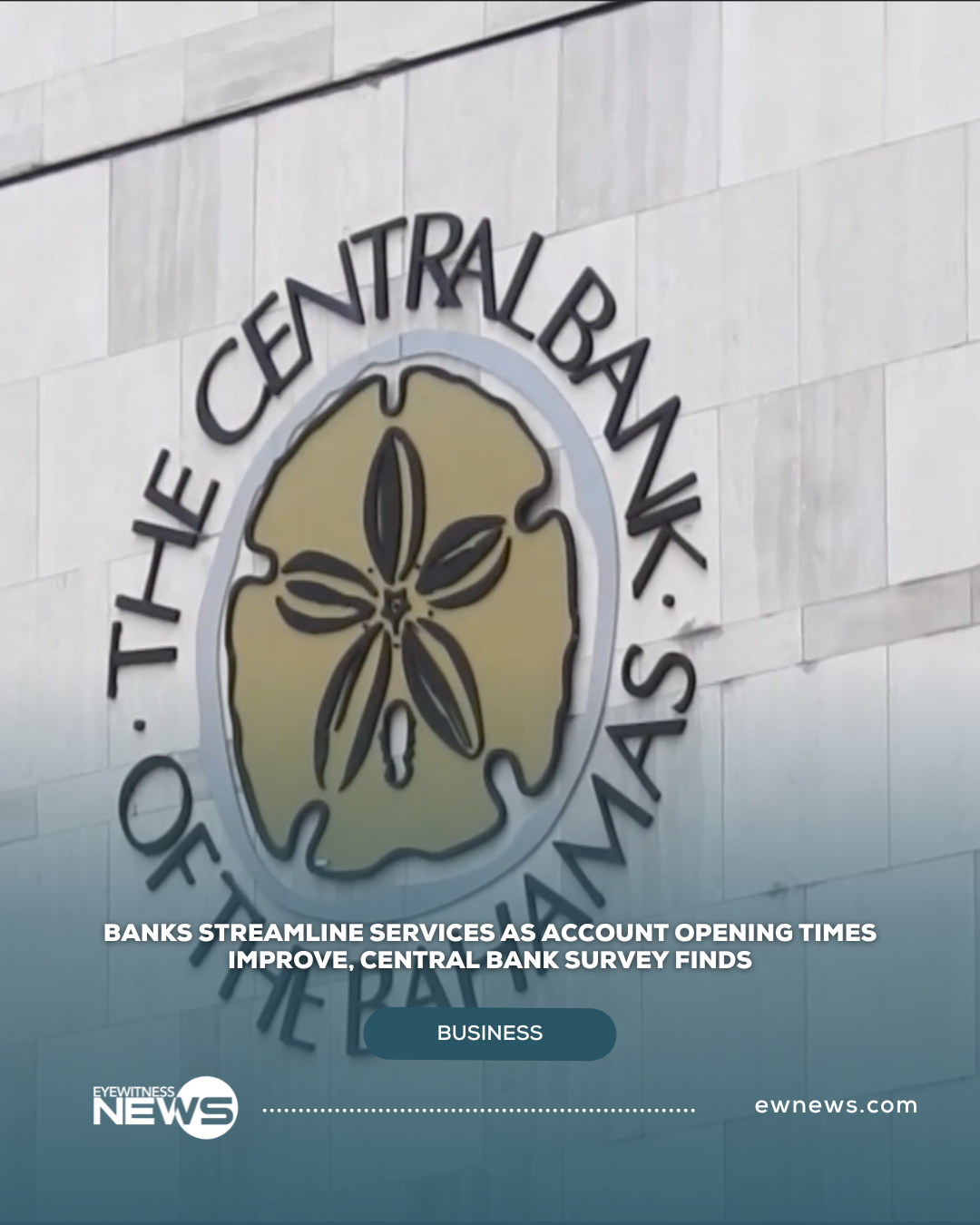NASSAU, BAHAMAS- The Central Bank of The Bahamas’ latest semi-annual Bank Account Opening Survey (BAOS) shows that commercial banks are making steady progress in streamlining account opening processes, with measurable improvements in processing times, customer service, and accessibility for both residents and businesses. The second iteration of the survey, covering July to December 2024, indicates that while challenges remain, incremental gains are being made in the efficiency of transactional banking services across the country.
The BAOS, part of the Central Bank’s broader Payment System Modernisation Initiative (PSMI), was launched to monitor and improve access to financial services, particularly transactional accounts such as savings and checking accounts, which serve as the primary entry point for most consumers. With increasing economic activity and population growth driving demand for banking services, the survey provides critical insights into operational and regulatory factors that affect account opening outcomes, supporting the Central Bank’s goal of promoting a more inclusive and efficient financial system.
During the second half of 2024, six commercial banks participated in the survey, collectively processing 28,012 deposit applications, virtually unchanged from the first half of the year. Of these applications, 96.9 percent were from residents, primarily individuals, while 3.1 percent came from non-residents—a segment that saw a 7.6 percent increase since the first half of 2024. By currency, the vast majority of applications (96.5 percent) were for Bahamian dollar accounts, with foreign currency accounts making up 3.5 percent of submissions.
Savings accounts remained the most requested product among residents, accounting for 72.4 percent of applications, followed by demand deposits (15.8 percent) and fixed-term accounts (11.7 percent). Notably, fixed account applications increased by 19.7 percent over the previous period, while chequing accounts grew slightly by 1.2 percent. Business account applications also saw a notable uptick of 15.5 percent, reflecting the growing demand from the private sector for transactional services.
In terms of processing efficiency, banks demonstrated measurable improvements. Approximately 99.7 percent of resident applications were fully processed during the review period, slightly up from the first half of the year. For individuals, the approval rate reached 99.7 percent, with only 0.3 percent of submissions denied. Businesses experienced more varied outcomes, with 95.4 percent of resident business applications approved, 1.2 percent remaining unprocessed, and 3.4 percent still incomplete at year-end. Non-resident applications were processed at a 98.5 percent rate, improving from 96.5 percent in the first half of 2024.
The average processing times for Bahamian dollar accounts continued to improve. Individual applications were completed in 2.9 days on average, down from 3.5 days, while business applications were processed in 2.5 days, also a reduction from the previous six months. Even foreign currency accounts, which typically require more documentation and scrutiny, experienced shorter processing times in most cases. Delays for incomplete applications were significantly reduced, with average resolution times halved compared to the prior survey period.
Operational practices at banks played a key role in these improvements. Many institutions reported leveraging process automation, enhanced tracking of key performance indicators, publication of Know Your Customer (KYC) documentation requirements, and electronic monitoring of application status and customer queries. While most banks reported minimal impact from factors such as application volume, staffing, outsourcing arrangements, and regulatory compliance requirements, incremental enhancements in IT platforms and operational strategies helped support faster processing.
Appointment scheduling also evolved, with fewer applicants needing to queue to begin the account opening process. Five of six banks reported that applicants could initiate the process without scheduling an appointment, up from three in the first half of 2024. However, for banks still requiring appointments, the average wait time increased slightly to 15.8 days, compared to 13.8 days previously. Decision-making authority remained largely branch-based, with 72 percent of applications adjudicated locally, 23 percent at the country level, and 6 percent at regional or enterprise levels.
The survey highlights that while Bahamian banks are making meaningful strides in improving accessibility and efficiency, opportunities remain—particularly in harmonising processes for business and foreign currency accounts and further reducing delays in resolving incomplete applications. By continuing to monitor these metrics and implementing targeted interventions, the Central Bank aims to foster a financial ecosystem where account opening is not only faster and more transparent but also more inclusive for all segments of the population.






